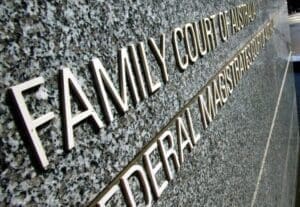
Following Britney Spears’ public divorce, custody battle and infamous public ‘2008 breakdown’, Ms Spears was involuntarily placed in psychiatric care and under conservatorship of her father James Spears by the Los Angeles Superior Court. For over 12 years, this conservatorship has restricted Ms Spears autonomy over both her personal and financial affairs.
In 2021, #FreeBritney trended, and the public rallied for Ms Spears as she made application to the Court to remove her father from the conservatorship, citing abuse of power and manipulation she has experienced under this arrangement. She succeeded with this application in August this year.
The public nature of this application may have you wondering, what is a conservatorship and how do they work in Australia?
Conservatorships?
Broadly speaking, a conservatorship is a court-ordered legal arrangement whereby an individual’s power to make personal and financial decisions is removed where it is determined they cannot do this for themselves, and someone else is appointed to make those decisions on their behalf.
The decisions the conservator is authorised to make are significant and far-reaching, extending to decisions such as where the person lives, collecting of income, determining employment, medical treatment and whether they can drive. In Ms Spears’ case, this power extended so far as forcing her to take certain birth control.
In America, the test for conservatorships is incredibly high, and it is generally unusual for someone to be placed under a conservatorship if they are not severely mentally impaired or elderly. The conservatorship must be the only way to protect that individual’s welfare.
Do Conservatorships exist in Australia?
In Australia, the law does not provide for ‘conservatorships’ in the same way as American jurisdictions. Rather, there are different guardianship and financial management laws which vary between states and territories. In NSW, most cases involve a decision made by Guardianship Tribunals, who appoint a financial manager (“administrators”) to take care of financial affairs, and personal guardians to make decisions around the health and lifestyle of individuals. Application to the Guardianship Tribunals can be made by a family member, but also by government employees and carers or medical professionals to form the opinion the individual does not have capacity to make decisions for themselves.
In Australia, guardianships are becoming more prevalent concerning individuals with dementia, where financial managers are appointed to prevent financial abuse, though it has been seen this has been a cause of financial abuse itself. However, the most common area of guardianships relates to the National Disability Insurance Scheme (NDIS). In ascertaining whether guardianship is required, the court will consider factors such as how capable the person is, their best interests, the family support they have access to, and what might occur if a guardian is not appointed.
How are these decisions reviewed?
Guardianship decisions are subject to review, having regard to the welfare and interests of the individual concerned, though it can be difficult to have financial managers and personal guardians removed.
The structure of appointment in NSW involves a process of “substituted decision-making”, given someone acts on behalf of the individual deemed incapable of making their own decisions. This is criticised by the United Nations and various Australian Disability Advocacy organisations, who advocate for a supported decision-making system based on the individuals’ “will and preferences”, engendering greater agency over their finances and personal lives.
Why #FreeBritney in Australia?
The #FreeBritney movement is a timely reminder for Australia that our guardianship laws have made little progress to abolish substituted decision-making regimes, which provide opportunities for abuse and neglect of vulnerable and individuals with disability. These issues are currently being explored by the Royal Commission into Violence, Abuse Neglect and Exploitation of People with Disability, which will likely result in significant changes to this area of the law.
Importantly, #FreeBritney is a reminder that coercive control, financial and psychological abuse can exist in many forms, and occur to people from ‘normal’ to ‘superstar’.
If you or someone you know is experiencing challenges with Guardianship Laws, or are experiencing financial or psychological abuse, our offices are available to assist you. Call us on (02) 8917 8700 to find out more.

Herbert Smith Freehills has published its findings about the future of the workplace post-COVID-19 in its recent report, The Future of Work: Remote/Controlled. The research suggests that vaccine mandates, increased use of technology for surveillance of workers and different rates of pay between remote workers and workers in-office could change the workplace as we know it.
The report concentrated on the changes we can expect to see from Australia’s largest companies in the next three to five years. The key findings are:
- 43% of senior executives indicate that they plan to pay remote workers less than office-based workers.
- 80% of companies intend to measure workers’ productivity and output, rather than the number of hours worked.
- 77% of companies plan to use digital tools to monitor the wellbeing of their employees.
These changes raise significant questions, especially about the risk of splitting the workforce in two and how this impacts employee remuneration. Should employees who work from home, saving time and money spent on travel and subsistence costs, be paid the same as their office-going counterparts? If not, would a pay differential penalise certain members of society who are more likely to opt for remote working, such as working mothers?
In anticipation of backlash against these changing workplace rules, several large corporations have already taken steps to restrict employees’ reactions, such as stricter policies regarding public comments, signing petitions and strike actions. This may leave workers feeling as if they have no voice in shaping what the post-pandemic workplace will look like.
If you believe you will be impacted by these changes and wish to find out more, please do not hesitate to contact us for information and advice on (02) 8917 8700.

The Australian Taxation Office (ATO) can now release superannuation information to a family court, under a new law passed at the beginning of September 2021.
New provisions under the Treasury Laws Amendment (2021 Measure No. 6) Bill 2021 make it more difficult for parties to hide the true value of their superannuation assets to their ex-partner and will allow the accurate sharing of information quickly and inexpensively. It is a welcome change in the family law sector as it will make it easier for parties, particularly victim-survivors of financial abuse, to recover their fair share of the matrimonial asset pool.
A party to family law property proceedings can apply to a family court registry to request their ex-partner’s superannuation information held by the ATO. Once granted, parties can then access up-to-date information about their ex-partner’s superannuation entitlements.
Making superannuation information more accessible will improve property division outcomes for all parties, by ensuring the process is just and equitable. It resolves the unfairness that arises where one party is not providing a complete disclosure of their assets and enables parties to engage on a level playing field. This legislation is particularly helpful where there are multiple superannuation entities involved over the years and records are incomplete or hard to follow. Finally, it will help to mitigate the negative effect of separations on retirement incomes, particularly of women.
If you would like to learn more about these new changes in the law or believe that your proceedings may be affected by them, please do not hesitate to contact us on (02) 8917 8700.

The division of inheritance during divorce settlements is a volatile process. Here are some things you should keep in mind.
What is Inheritance?
An inheritance is the practice of passing on a gift of property upon the death of an individual. This can occur either through the Will of the person who has passed away, and if a person has died intestate (not having made a will before their death), then courts will distribute the property pursuant to the succession laws.
Factors to Consider Regarding Inheritance and Divorce
There are many factors to consider when dividing inheritance during a divorce, and this is almost always circumstantial and determined on a case-by-case basis. These factors are set out below.
- When was the Inheritance Received?
If the inheritance was received by one party around the commencement of the relationship, it is most likely to be seen as a financial contribution to the relationship and will be included in the divorce asset pool.
If the inheritance was received during the relationship, its division will predominantly be based on how the monies was used in the relationship, as well as what the intentions of the benefactor were.
If the inheritance was received after the date of separation, in most cases it will not be viewed as a financial contribution to the asset pool. However as stated above, through judicial discretion, courts can divert from the traditional approaches to inheritance based “upon the circumstances of individual cases” (Miller & Miller [2014] FamCA 591). In this case, the husband received a significantly large inheritance 3 years prior to the end of a 10-year marriage, where parties had two young children. The Full Court found that it was appropriate for the inheritance to be included in the pool of assets while still giving the husband a generous assessment on contributions. This is because the wife had carried the main financial burden in family and she played a more substantial role as a homemaker and parent than the husband.
- What were the Intentions of the Benefactor?
The intentions of the benefactor are another factor that must be considered. The court will have discretion to determine the evidence that support the benefactor’s intentions; whether that be the inheritance should benefit the whole family (and will be a part of the asset pool) or whether it is only to benefit the named beneficiary (and kept separated from the asset pool if the beneficiary keeps it separate from other joint assets).
- What is the Size of the Asset Pool?
The size of the asset pool in comparison to the size of the inheritance can significantly influence how inheritance will be distributed in a divorce settlement. Specifically, if the size of the asset pool is smaller than the inheritance, a late inheritance may be included for distribution.
Legal Advice
The distribution of inheritance in divorce settlements in Australia is a complex process and many factors need to be considered.
If you are attempting to resolve issues regarding inheritance and divorce and are looking for assistance, please do not hesitate to contact our offices on 8917 8700.
Family law proceedings are stressful and complex processes. Here are five factors you should consider before initiating these proceedings.
1. Are you emotionally ready to undergo family law court proceedings?
Family law court procedures, whether they are regarding divorce, children, or property settlement, are extremely stressful. You must be mentally and emotionally prepared to face various obstacles of court procedures. Emotions that may arise include denial, anger, guilt, grief or confusion.
In most cases, parties will attempt to resolve their matters in alternative dispute resolutions where the emotional strain is significantly alleviated.
2. Have you tried Family Dispute Resolution (FDR)?
The most common forms of FDR used as alternatives to family law court proceedings are negotiation and mediation.
Negotiation involves both parties discussing the matters at hand in an attempt to come to a resolution that both parties are happy with. Negotiation can be an in-person meeting or through emails, letters and telephone calls. It is very practical as it avoids the high costs of a protracted court process. Negotiation also allows parties to preserve, and potentially enhance, their relationship through a mutually satisfying resolution.
If negotiation is unsuccessful, you must consider whether it is worthwhile undergoing mediation processes with the other party. Mediation will only be successful if both parties cooperate and want to resolve the issues amicably. Mediation is similar to negotiation; however, the issues are brought before an impartial third party through organisations such as Anglicare and other local mediation services.
If negotiation and mediation are unsuccessful, you will need to obtain a Section 60I Certificate which will enable you to commence legal proceedings.
3. Court proceedings including children
It must be acknowledged that court processes can have significant impacts on children. Research conducted by the Family Court of Australia has shown that seeing parental conflict in a court setting has increased the risk of children having emotional, social, behavioural and academic problems. In these cases, it is best to resolve matters outside of court as it is rarely in the best interests of the child for them to undergo court procedures.
4. How urgent are the legal issues that need to be resolved?
You must consider whether the family law issues urgently need to be resolved. If they are not urgent, it is best to avoid formal court procedures and gradually come to an amicable resolution. If they are urgent, you need to obtain a Section 60I Certificate (as mentioned above) before proceedings can be commenced in the Family Court of Australia.
5. Seeking legal advice
Your final option, if FDR has failed and the legal matters need to be resolved urgently, is to undergo formal family law proceedings. The first step is to obtain legal advice in relation to your situation.
If you are contemplating whether you should initiate family law court proceedings and require further assistance, please do not hesitate to contact us on (02) 8917 8700.
With increasing accessibility of COVID-19 vaccinations, there is increasingly likelihood of dispute between parents concerning the vaccination of their children. What can be done if your ex-partner refuses to consent to your child receiving a vaccination?
Vaccination of children is a long-term parenting decision that falls within the scope of ‘parental responsibility’ within the meaning of the Family Law Act. If you and the other parent cannot agree on whether your child should be vaccinated against COVID-19, application can be made to the Family Court to resolve this issue.
In the case of Covington v Covington (2021) FLC 94-014, a mother who had withdrawn consent over the vaccination of her child argued the Australian Constitution prohibited the Family Court from making vaccination orders for her child, and a doctor administering any vaccination would be committing an assault against her child. The Court dismissed her appeal, holding the authority of the Family Court to make orders with respect to child vaccination is well settled and that decision would turn on the facts of each case.
The case of Duke-Randall & Randall [2014] FamCA 126 further provides that where such a decision is to be made by the Court, the Court will have regard to the best interests of the child, which includes the review of medical evidence concerning the child’s vaccination.
If application is made to the Family Court concerning a child’s vaccination, in exercising discretion the Court may make an order that grants one parent sole responsibility for making medical decisions (inclusive of vaccinations) or grant sole responsibility for all major long-term decisions concerning the child’s wellbeing and care. Alternatively, the Court may order parents ensure that their child is vaccinated in compliance with the National Immunisation Program Schedule.
If you and your ex-partner disagree as to the vaccination of your child, please do not hesitate to contact us on (02) 8917 8700 for assistance in resolving your matter.
 Families subject to Parenting Orders are facing significant disruptions in Greater Sydney as a result of stay-at-home orders, particularly where travel restrictions limit access to public meeting points and disrupt the school term.
Families subject to Parenting Orders are facing significant disruptions in Greater Sydney as a result of stay-at-home orders, particularly where travel restrictions limit access to public meeting points and disrupt the school term.
Do Family Court Orders still apply during the stay-at-home orders?
Family Court orders continue to be in force and remain legally binding on parents, even during a global pandemic and stay at home orders.
Leaving home to comply with Family Court Orders, such as to collect or drop off children to fulfil parenting arrangements constitutes a reasonable excuse to leave home under the Public Health Orders. The stay-at-home orders provide:
For children who do not live in the same household as their parents or siblings or one of their parents or siblings – continuing existing arrangements for access to a contact between, parents and children or siblings” (Paragraph 10 – Schedule 1 of Public Health (COVID-19 Greater Sydney) Order (No 2) 2021 [NSW].
It is clear travelling for shared parenting arrangements is permitted, however, if you are located within one of the hotspots you will be required to follow government guidelines and obtain a negative COVID test prior to travelling outside the Sydney region.
What arrangements are available in the event a parent is required to self-isolate?
Parents are required to act in the best interests of the child, by protecting them from harm and ensuring meaningful relationships between both parents. In the event one parent has been instructed to isolate pending COVID-19 test results, both parents should endeavour to develop safe alternatives for the child. This may include scheduling “make up time” once the affected parent has received negative test results and maintaining contact over FaceTime or telephone. Parents should endeavour to find alternate arrangements that are sensible and reasonable to ensure compliance with Family Court Orders.
Parents may not use restrictions or unnecessarily restrict access to their child from the other parent. However, in the event the child is exposed to COVID, a Court may find that a parent had a reasonable excuse for contravening existing parenting orders. If you have concerns about restricted access to your child, please contact us for assistance.
Is your ex-partner refusing to share care for your child resulting from COVID concerns?
If your ex-partner is refusing to share care for your child resulting from COVID concerns, and refuses to negotiate alternate arrangements sensibly and reasonably, Freedman & Gopalan can assist you in mediating a solution. In the event this is not possible, we can further assist you in making an urgent application seeking parenting orders.
If you are concerned about compliance with Family Law Orders under the current stay at home orders, please do not hesitate to contact us on 02 8917 8700.
Juggling the challenges of raising a new baby with the pressures of returning to work is a struggle many new parents face. Last week, a reputable Sydney law firm instituted policy changes that could see an end to this impossible balancing act.
Ashurst’s new policy introduces fully paid parental leave for both mothers and fathers for 26 weeks. Staff could also enjoy shorter workdays after their return, as targets for ‘billable hours’ will reduce for three months. The firm claims this new global framework will strengthen support for all parents, regardless of gender.
The use of parental leave by fathers in Australia is exceedingly low by global standards. The Australian Bureau of Statistics has shown that only 1 in 20 fathers take primary parental leave. Three in four claim they would have liked to take more leave to care for their families.
In a welcome departure from this trend, Ashurst employees’ gender will no longer affect the length of leave they can access. Ashurst claims it has made an effort to remove gendered language “so there is no distinction between primary/secondary and maternity/paternity”.
While fathers are set to benefit from the changes, creating equality in parental leave is equally valuable for female employees as it suppresses the harmful stereotype that women are a financial liability as they approach child-bearing age.
The Sydney law firm has also introduced allowances for expectant parents who have suffered the heartbreaking loss of a miscarriage. Mothers, partners and surrogate mothers will all be eligible for the full 26 weeks of paid leave if a pregnancy is lost after 20 weeks gestation. Employees who lose a child in earlier stages of pregnancy will be able to take two weeks of paid leave, with an additional 5 days allowance for appointments.
Support groups have long been promoting the value of compensation for early pregnancy loss, claiming it is vital to the physical and psychological welfare of grieving couples. While 98% of pregnancy occurs in the first 12 weeks, employers are not legally bound to provide leave unless the gestation was at least 20 weeks. Read our blog post here. Ashurst’s revolutionary reforms could provide relief for countless employees who would otherwise have to deal with their emotional and physical traumas is silence.
Policies like these are vital for happy, healthy and, ultimately, more productive staff. This is especially true in the legal profession, where practitioners notoriously suffer from poor work-life balance, with 75% claiming they frequently or always work outside of business hours. We can only hope other businesses throughout the country will start to follow in their footsteps.
If you have further questions, or would like to enquire about your legal entitlements to paid leave, do not hesitate to contact us on 8917 8700.
 If you have just separated from your partner and are wondering what the next steps are, here are a few simple tips to assist you:
If you have just separated from your partner and are wondering what the next steps are, here are a few simple tips to assist you:
Step one: Identify all assets and liabilities that are available for division. Properties, bank accounts, motor vehicles, jewellery, superannuation entitlements, shares etc., are considered assets. This includes assets held either in your sole name, or jointly with your partner or any third party. Do not forget to include assets that you or your partner may have overseas. Liabilities are any debts that you or your partner may have, whether personal or with a bank or an entity.
Step two: The next step is to consider the following contributions made by both you and your partner, at the commencement of the relationship, during the relationship and after separation.
a) Financial Contributions;
b) Non-Financial Contributions; and
c) Contributions as a parent/homemaker.
Financial Contributions are any monetary contributions made by you or your partner. It could be the income you earned during the relationship, any assets owned at the commencement of your relationship, any inheritances or gifts acquired, any property acquired solely from one’s savings/income earned.
Non-financial Contributions are contributions by you or your partner that might have assisted in increasing the value of any asset. It could be any renovation or landscaping done on a property or even any unpaid work done at a family business.
Contributions as parent/homemaker could be the grocery shopping, care for children/elderly, all household chores or any other general parenting responsibilities.
Step three: The next step is to consider what the future needs of both parties are. Some of the factors the Family Court in Australia will consider are age, state of health, current income, future earning capacity, current & future parenting responsibilities.
Step four: Depending on the circumstances, the Court might consider whether it ‘just and equitable’ to consider an adjustment in favour of an individual, prior to even considering the individual contributions.
However, be aware that there is no strict formula for property division, and it differs from case to case. Accordingly, we advise that you obtain legal advice prior to entering into an agreement with your partner.
If you are struggling and wish for some assistance in settling your property division and severing your financial relationship with your partner, please do not hesitate to contact us on 02 8917 8700.



